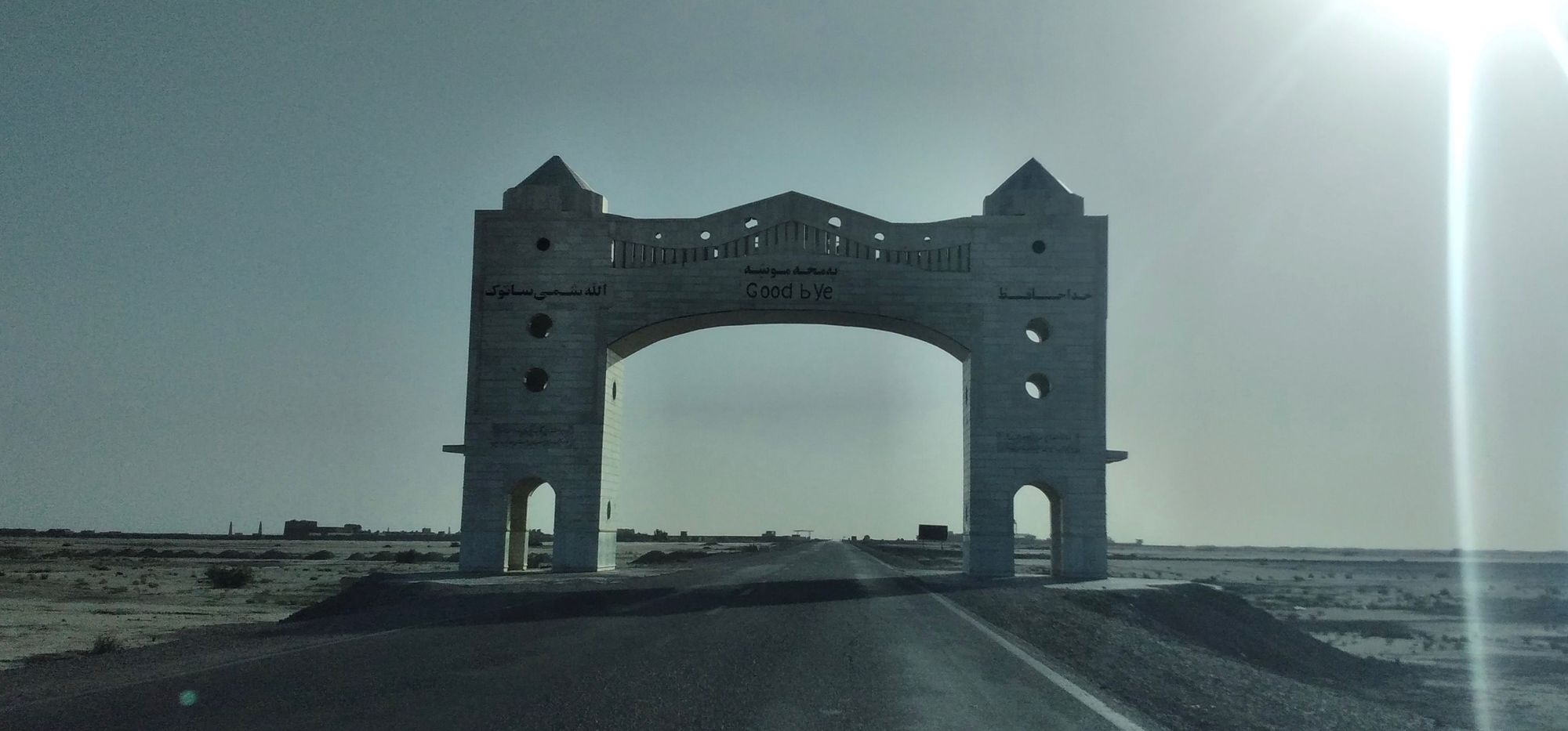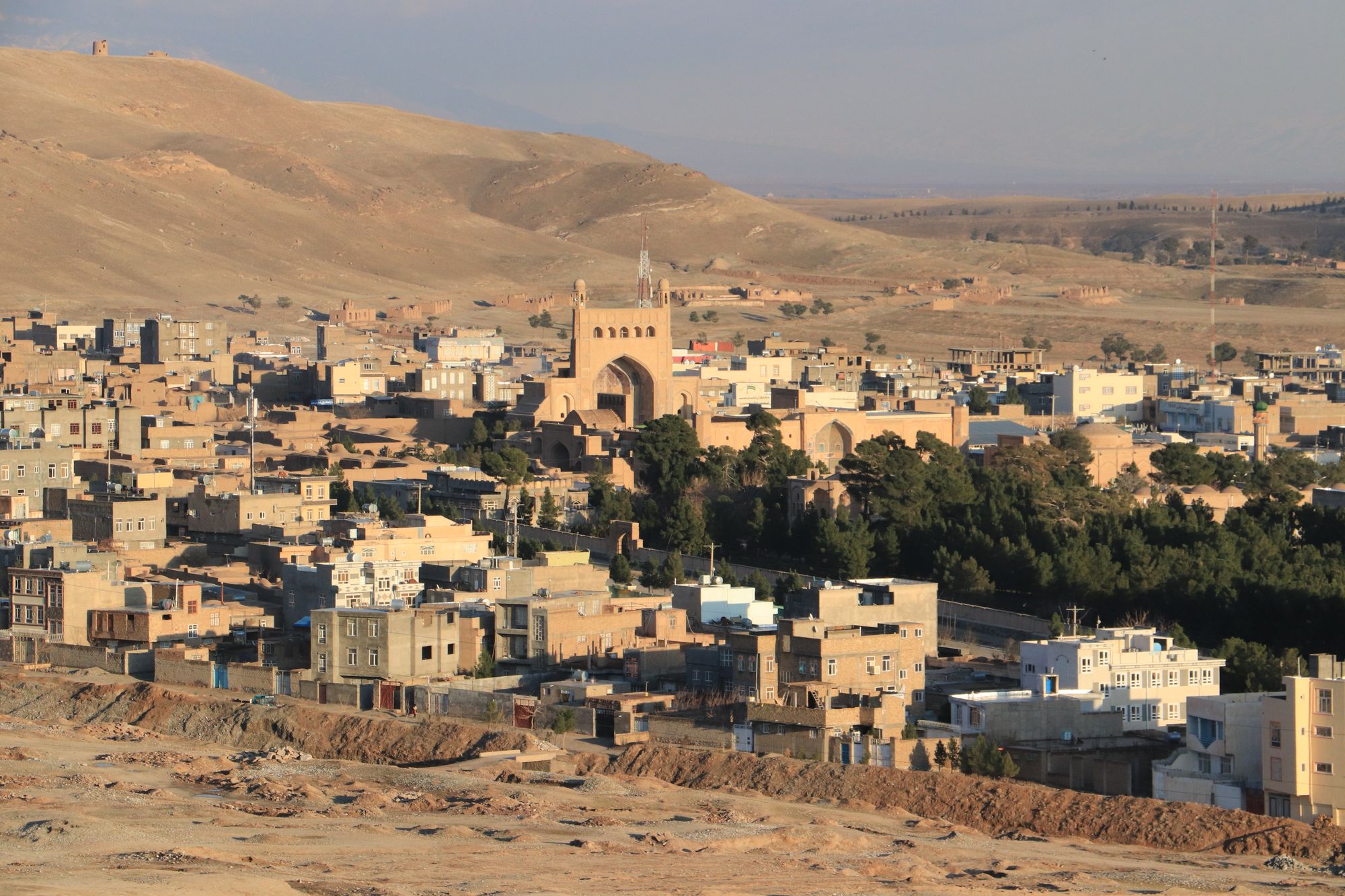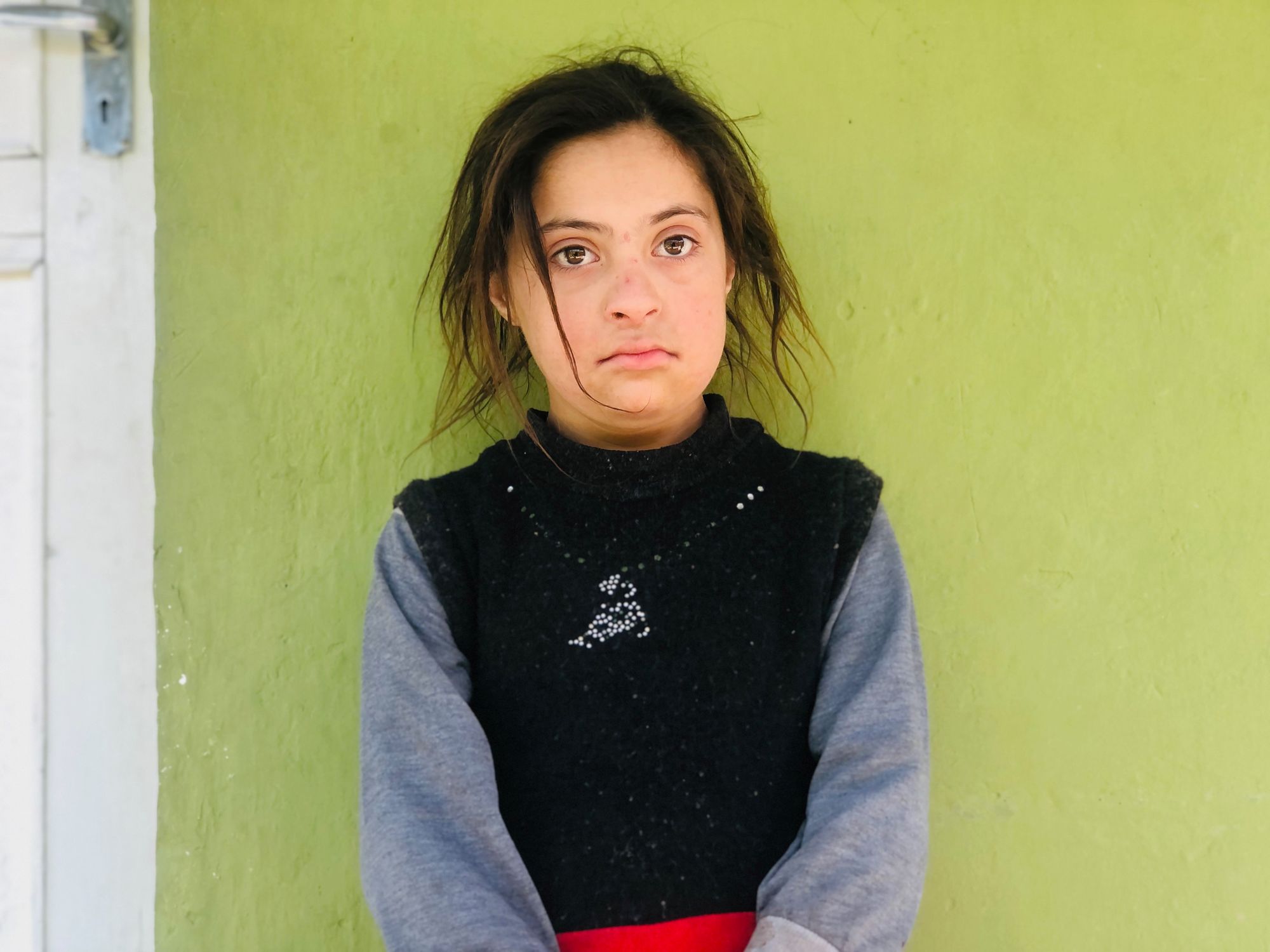Mental Illness, A Silent Enemy
Mental illness has plagued Afghanistan for decades due to war and despite a relative peace returning to the country, unemployment, poverty, and uncertainty about the future continues to exacerbate the effect of mental illness on Afghans.

Reporting by Razia Jafari, Samira Wafa, Abdul Karim Azim, and Shabana Farahmand
Written by Abdul Ahad Poya
AFGHANISTAN — Mental illness has plagued Afghanistan for decades due to war and despite a relative peace returning to the country, unemployment, poverty, and uncertainty about the future continue to exacerbate the effect of mental illness on Afghans.
Alive in Afghanistan reporters in Nimroz, Kabul, Herat, and Badakhshan interviewed people diagnosed with mental disorders and members of their family to understand how they are coping with these challenges in Afghanistan’s current environment.
Unemployed mother gets seizures and prefers silence
It’s lunchtime, but Rahima doesn’t have an appetite, she is facing the window and staring outside. Her hands are folded on top of each other, her face without expression. When she looks back at her girls, her eyes get watery while she presses her hands together.
“I fear that the silence, the abstinence from food, and the seclusion will result in us losing her, and our lives turning upside down. The life of a family depends on a mother and father,” Rahima’s husband, Sulaiman, says.
While speaking, Sulaiman tries to fix Rahima’s scarf, to hide her black hair from vision, but Rahima stops him with a deep look, like she is saying, “What do you want from me?”
Before the Taliban, Rahima used to babysit a child for a salary of 7,000 Afghanis ($80.45) a month but since the Taliban’s return to power, she lost her job. She is the mother of 5 children both boys and girls.
Rahima resides in Kabul with her husband Sulaiman, who told Alive in Afghanistan, “Prior to the new government, my wife used to work as a nanny and with the wage she earned, we made ends meet. Also, I used to work as a push cart driver in the bazaar but during the past 2 years, due to unemployment, restricting the freedoms, harsh reactions, as well as anti-human rights demeanor of the Taliban, has caused my wife to develop mental disorders and my life to fall apart.”To learn more about Kabul’s markets and push carts read “Taliban Apply New Fees for Roadside Stalls in Kabul.”
Rahima’s oldest daughter, 17-year-old Frishta, who is already struggling with being barred from school, says that seeing her mother in such condition multiplies her pain.
Frishta said, “When my mother gets anxious or pessimistic about the future of her children or worries about being unemployed or what the future holds, she experiences seizure attacks and a foaming liquid like washing powder comes out of her mouth and we have no other choice but to call the ambulance from Kabul’s Mental Health Hospital. They take my mother there and after giving her injections and medication, we return home and for a few days my mother is good but the scenario repeats itself. Every time my mother has a seizure, the world collapses on us.”
Rahima’s doctor Zahida Sakhi who works at Kabul’s Mental Health Hospital in Taimani, says that they have many patients like Rahima but due to lack of facilities and equipment they can’t treat them.
About the cause of such mental disorders, Dr. Sakhi says, “The cause of such mental disorders is anxiety, depression, schizophrenia, panic attacks etc. Unfortunately, many of the young both male and female have developed such illnesses.”

A mother of six incapable of taking care of herself
Nearly eight hundred kilometers east of Kabul, 45 year-old Atro lives in Gav Dari village of Zaranj, the capital of Afghanistan’s southeastern Nimroz province. Nafisa, her sister-in-law, is making lunch for Atro’s children. After a few minutes, Atro enters the room with a disheveled look and sits down without saying hello.
“Say hello, she is our guest!” Nafisa says to Atro. Atro doesn’t pay attention to any of us, she is restless, getting up and sitting down constantly.
Atro is a mother of six suffering from mental disorders for many years. Atro’s husband, Enayatullah, works in Iran and while he is away Atro’s sister-in-law, Nafisa takes care of her.
According to Nafisa, over the past week , Atro’s illness has worsened.
Nafisa, says that according to Atro’s mother since she was 6 she used to beat her head against the ground until her demands were met.
Also, 10 years ago, one of Atro’s brothers was killed in war, which further contributed to Atro’s mental problems.
Besides caring for Atro, Nafisa takes care of Atro’s six children and has 5 toddlers herself. Nafisa even breastfeeds Atro’s 1 year old infant.
According to Nafisa, Atro has had seizures in the past and couldn’t differentiate between her own kids. Atro cannot bathe , feed, or dress herself nor perform other daily routines properly.
“She just walks around, distressed. She scratches her body, pulls out her hair and if the children of strangers come to the house, sometimes she attacks and beats them. Yesterday, she was kicking the neighbor’s daughter and I rescued her.”
She continued, “Currently, Atro can’t speak, whatever we ask her, she answers, I don’t know and how would I know.”
According to Ms. Nafisa, whenever Atro can’t sleep for 2 consecutive nights due to taking care of her infant, she completely loses her mind and won’t improve until she is treated by her doctor.
“We took her to Doctor Muhammadi in Herat but she didn’t get better. Yesterday, we took her to Doctor Qoraishi in Nimroz who injected her with 2 painkillers but it had no effect. Last night, we locked her in her room and she had taken off her clothes. She had torn apart her clothes’ collar, would sit up while under an IV, and is not aware of her surroundings. When she was a child, she had similar experiences and burned herself. Last year, she was in a similar situation and the doctor gave her electroconvulsive therapy.” Nafisa said.
While Nafisa talks about her sister-in-law’s condition Atro acts very agitated, first removing her scarf, then going to her room to sleep, before returning after a short while when she doesn't fall asleep. She is silent this whole time.
Nafisa describes her as a confrontational, adventurous, and stylish but also jealous woman.
“Her husband works as a transit driver on Pol-e-Abrisham road and whenever he brings souvenirs from Iran, she gets jealous and won’t let anyone else have any. Whenever her husband returns home from travel, she dolls up but when she doesn’t sleep for 2 consecutive nights, her anxiety disorder kicks in.”
Nafisa shows the plastic bag full of medicines which were prescribed by doctors earlier this week. According to her the medications had terrible side effects and Nafisa is concerned that she might not get well, and won’t be able to look after her husband and 6 children.
The family borrowed 12,000 Afghanis ($137.93) for Atro’s treatment in Herat because her husband is currently in Iran. “This time, whatever medication she takes, they don’t have any effects on her.”
Furthermore, 2 brothers of Atro have mental disorders as well and due to their severe condition, they are chained up at home. Unfortunately, there is no center for them to be nursed/detained and taken care of.
Due to lack of facilities for those mentally unstable, family members have no choice but to chain them up inside their homes. They are chained up inside a room, or outside in the yard, based on how cold or hot it is.

The most vulnerable are the most restricted
In Herat unemployment and rising uncertainty about the future has led a number of residents to develop mental disorders.
Taking pity on him, a local taxi drops a young man dressed all in black and wearing shabby, dilapidated shoes in the center of the city. The young man, Noor Ahmad, says that after the Taliban took over the country, many who were the sole breadwinner of their families like him, lost their jobs.
“I lost my job and now I’m unemployed and I’ve developed mental problems. In the previous government, I used to continue my education and work at the same time. By the Taliban taking over, I lost all I had besides my minimal income and now I’m stuck at home.”
Noor used to work as an employee in a government office and with the salary he had, he was pursuing a bachelor’s degree in accounting but with the fall of the Afghan government and the loss of his job, he can no longer continue his education.
“I’m the breadwinner of 8 and currently work as a truck driver and I make 5,000 Afghanis ($57.47) a month. In the previous government, my wife used to work as a cleaner but currently, she is unemployed and due to these reasons, I have developed depression. After the Taliban took over, most white collar workers lost their jobs and remained unemployed for a long time and thus developed mental disorders while some others emigrated in order to be safe.”
Sulaiman, another resident of Herat says that with the instability of economic and political condition of the country, people, specifically the young are going through a lot. Although Sulaiman is only 25-years-old, in his current state of anxiety and mental distress he appeared much older.
Sulaiman spoke very quietly saying, “With tons of wishes and hopes, the young pursued higher education so they would be somebody in the future but now, they are unemployed. It’s natural for the young graduates to develop depression and mental disorders because of remaining unemployed and sometimes, some even have committed suicide.”
He used to work as a waiter in a restaurant in the previous Afghan government but now, he is unemployed and ill.
Aspecialist in mental disorders who wants to remain anonymous, because he was not authorized to speak with the media, told Alive in Afghanistan that mental illnesses are one of the main challenges of the community, “Unfortunately, the new restrictions specifically on women, has caused a rise in mental disorders among them. In some cases, these limitations promoted domestic abuse in families and thus, some forcefully married their daughters off. These are some of the factors that can hurt a woman’s mind and can lead to development of mental illnesses such as depression and adjustment disorder. Also, the restraints can lead to inadaptability to circumstances.”
Even though he doesn’t have an accurate statistic about the number of the mentally disordered individuals, he says, “Considering the gender differences, the most vulnerable social class in psychological disorders are women. More than 70 percent of women have developed some sort of such disorders.”
This expert in mental health believes that restrictions on both men and women in education and work has had negative consequences so much that some individuals have started practicing self-medication in order to ease their pain. He adds that excessive consumption of such drugs creates mental problems and has side effects in the long term.

Locked in her room, drowning in thoughts
On the outskirts of Badakshan, in northeastern Afghanistan, lives Selsela, a 9-year-old girl with messy hair and almond-shaped eyes. From childhood, she didn’t grow up like the other kids and the way she behaves and speaks is also different from others. She was healthy at birth but as time passed, signs were revealed that she can’t speak and move just like the others at her age.
Selsela wore a black dress and kept putting her hands in her mouth while her mother sat nearby. Selsela’s mother Fahima said, “Selsela can’t speak properly, nor sit or understand what I say. She is not like my other kids because they could understand everything by the age of 4 but Selsela cannot and I don’t put pressure on her either.”
According to her mother, Selsela developed this condition at the age of 4 and her problem has still not been diagnosed.
“Sometimes when I take Selsela out, she gets lost in streets or Bazaar or goes with strangers and doesn’t know the way back home.”
As a mother, she is worried and concerned that her child will continue growing up and remain abnormal.
Latifa 20, is a student of Business Administration in Badakhshan University. With the Taliban takeover, she couldn’t continue her education and is stuck at home. She says, “It has been 2 years now that I’m unemployed and stuck at home because we are barred from education and work. Sometimes, life gets so harsh and difficult that one forgets herself.”
She is depressed due to being unemployed and not having plans. Reza, Latifa’s father says, “Since the day she is stuck at home, she locks herself in her room and when gets out, sits in a spot and drowns herself in thoughts. It doesn’t matter how much I sooth and comfort her, she doesn’t take me seriously.”
She suddenly bursts into tears and doesn’t talk to anyone; she isolates herself from people and the community. Once I took her to a psychiatrist and he said that your daughter has been mentally hurt and should be kept happy and I don’t have any idea how to keep my daughter happy and convenient in such circumstances.
There is a lack of health measures for the mentally disabled in Afghanistan and the healthcare system is struggling, making it very difficult to diagnose and treat such conditions. Additionally, mental health specialists and health centers to house and treat such persons and specifically in remote provinces are limited if they exist at all. Moreover, officials don’t have any kind of plan and measures to control the spread of such illnesses.
Alive-in is a not-for-profit media agency that mentors journalists from underrepresented communities to increase local and national understanding.
If you are able to support our work financially, please click the button below.
